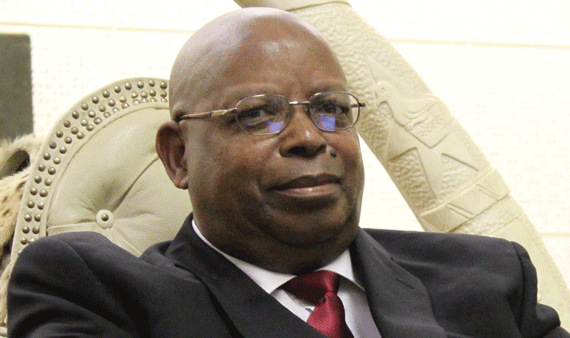
NATIONAL Assembly speaker Jacob Mudenda yesterday castigated the long queues that have become a permanent feature at the passport offices, describing them as an insult to human dignity.
VENERANDA LANGA SENIOR PARLIAMENTARY REPORTER
Mudenda was speaking during the launch of the United Nations High Commission for Refugees (UNHCR) Nationality and Statelessness handbook for parliamentarians at a Harare hotel.
“MPs need to push for speedy processing of passports for citizens because it is a right — it is not a privilege and long queues are an affront to human dignity, as it is wrong to have a cumbersome process of getting passports and other identity documents,” he said.
Mudenda said the legislature should come up with laws to ensure acquisition of passports was easy and legal solutions to solve statelessness as well as generate debate on the issue to end human trafficking, threats of political instability, internal conflicts and other issues that rendered people stateless.
He added that people living on the streets deserved respect and urged MPs to make concerted efforts to give them an identity.
“When we see street kids in our towns our consciences should be prickled because they deserve the right to be humans — and MPs should make concerted efforts to ensure all street kids disappear from the streets,” Mudenda said.
United Nations resident co-ordinator Bishow Parajuli said every sector, including the legislature, should help address issues of statelessness, as there were many heartbreaking stories of women and children who were displaced and stateless.
- Chamisa under fire over US$120K donation
- Mavhunga puts DeMbare into Chibuku quarterfinals
- Pension funds bet on Cabora Bassa oilfields
- Councils defy govt fire tender directive
Keep Reading
“MPs can help end statelessness by adopting and domesticating legislation on UN statelessness conventions, which stipulate a national response to the conventions,” he said.
“We believe it is time to end statelessness and with enough political will, goodwill and commitment it can end.”
The UNHCR estimates that statelessness still affects at least 10 million people around the world as a result of discrimination, arbitrary deprivation of nationality, situations of State succession, inadequate civil registration practices and problems in acquiring documents, as well as gaps in nationality laws.
UNHCR representative, Millicent Mutuli, said Zimbabwe was a signatory to the 1954 convention relating to the status of stateless persons, but had not signed the 1961 convention, which was better in that it had broader provisions.
“We do not really know if there is a serious problem of statelessness in Zimbabwe, but we trust that the government will be in a position to answer that question and give us the number of people who face that risk,” she said.










